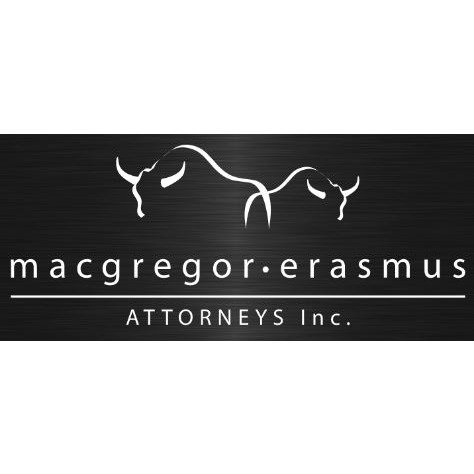Best Energy, Environment & ESG Lawyers in Durban
Share your needs with us, get contacted by law firms.
Free. Takes 2 min.
List of the best lawyers in Durban, South Africa
About Energy, Environment & ESG Law in Durban, South Africa
Energy, Environment and ESG (Environmental, Social and Governance) law is a specialized field that deals with legal regulations, compliance obligations, and disputes relating to the use of natural resources, environmental protection, sustainable business practices and corporate responsibility. Durban, as a major coastal city and economic hub in South Africa, faces unique environmental and energy challenges. These include issues related to industrial emissions, urban development, renewable energy adoption, water management, and climate change adaptation. ESG factors have become increasingly important in how businesses operate, requiring adherence to good governance and responsible environmental and social practices. Law in this field seeks to balance economic growth with environmental stewardship and social well-being.
Why You May Need a Lawyer
People and organisations in Durban may need Energy, Environment and ESG legal services in a range of situations. Legal support is often required for:
- Complying with environmental permitting or licence requirements for businesses or development projects.
- Responding to enforcement action or fines issued by environmental authorities for pollution or non-compliance.
- Understanding obligations and risks linked to renewable energy projects or traditional energy production.
- Addressing public or private disputes over environmental impacts, land use or water rights.
- Participating in public consultation processes, environmental assessments or zoning hearings.
- Ensuring a business meets current ESG performance standards and reporting obligations.
- Advising on environmental due diligence during mergers, acquisitions or property transfers.
- Protecting land, water and community interests against harmful developments or industrial pollution.
- Managing climate change compliance and sustainability strategy in a corporate setting.
- Pursuing compensation for damages caused by environmental incidents or regulatory violations.
Engaging a lawyer with expertise in this field can help navigate complex regulations, reduce risk, and represent your interests effectively.
Local Laws Overview
Durban, as part of the KwaZulu-Natal province and the eThekwini Metropolitan Municipality, is subject to several laws relevant to Energy, Environment and ESG. Key legal frameworks include:
- National Environmental Management Act (NEMA): Sets out the overall principles and processes for protecting the environment, including Environmental Impact Assessments (EIAs) required for many types of projects.
- National Environmental Management: Air Quality Act, Waste Act, and Biodiversity Act: These regulate specific aspects such as air pollution, waste management, and the protection of biodiversity and sensitive areas.
- Electricity Regulation Act and Renewable Energy Laws: Provide the regulatory structure for energy production, distribution, and the development of renewable energy in South Africa.
- Municipal By-Laws: The eThekwini Municipality has local regulations governing water usage, waste disposal, and building codes, which have environmental implications.
- Occupational Health and Safety Act: Imposes standards on employers to ensure safe working environments, including environmental health considerations.
- Corporate Governance Codes: The King IV Report and other South African corporate governance guidelines emphasize ESG responsibilities for companies, including sustainability reporting and ethical conduct.
Non-compliance with these laws can lead to significant legal and financial consequences. Durban's environmental context, with its port, industrial operations, and unique ecosystems, makes local compliance particularly important.
Frequently Asked Questions
What is ESG, and why is it important in Durban?
ESG stands for Environmental, Social and Governance. ESG criteria measure a company's performance on environmental protection, social responsibility, and ethical management. Businesses in Durban face growing pressure from investors, regulators, and the public to demonstrate ESG compliance, which impacts sustainability, reputation and access to funding.
When is an Environmental Impact Assessment (EIA) required for my project?
An EIA is required for activities that may significantly impact the environment, such as new developments, industrial operations, or changes in land use. The type and scope of the EIA depend on the nature and scale of the project and are regulated by NEMA and associated regulations.
What do I do if a business pollutes my property or water supply?
You can report the incident to the local municipality or environmental authorities, seek investigation, and possibly pursue a claim for damages or remediation. A lawyer can help assess your rights, gather evidence, and represent your interests in negotiations or litigation.
How does climate change law impact businesses in Durban?
Regulations are evolving to require businesses to reduce carbon emissions and improve energy efficiency. This can affect how companies manage processes, invest in clean technology or renewable energy, and report on their climate change strategy.
Can I oppose a new development if I believe it will harm the environment?
Yes. The law allows interested and affected parties to participate in consultation processes, submit objections, and sometimes seek legal remedies to block or alter a proposed development if it threatens the environment or your interests.
What are common penalties for breaching environmental laws in South Africa?
Penalties may include fines, remediation orders, suspension of operations, or even criminal charges for severe offenses. The extent of the penalty depends on the nature and severity of the violation.
Are there incentives for investing in renewable energy in Durban?
The South African government and some municipalities offer incentives, such as tax benefits, rebates, and preferential procurement, to encourage renewable energy investment. These may change over time, so it is important to stay informed.
Do I need a lawyer for environmental permit applications?
While not always legally required, a lawyer can help you understand application requirements, prepare documentation, communicate with authorities, and avoid costly mistakes or delays.
How does South Africa regulate corporate ESG reporting?
Companies listed on the Johannesburg Stock Exchange must report ESG information in line with the King IV Code and other standards. Private companies may also be expected to disclose ESG performance by investors or stakeholders.
What should I do if facing enforcement action by environmental authorities?
It is advisable to consult a lawyer immediately. You have rights to dispute or respond to allegations, but there are strict timelines, and the process can be technical. Legal advice will help you protect your position and comply with legal obligations.
Additional Resources
If you need more information or wish to contact relevant bodies, consider the following reputable resources:
- eThekwini Municipality: Environmental Planning and Climate Protection Department
- Department of Forestry, Fisheries and the Environment (National body)
- South African National Biodiversity Institute (SANBI)
- Environmental Law Association of South Africa
- South African Human Rights Commission (for social and environmental rights concerns)
- Durban Chamber of Commerce and Industry (for business-related guidance)
- Renewable Energy Association of South Africa
Next Steps
If you require legal assistance in Energy, Environment or ESG matters in Durban, start by identifying your key concerns or the specific legal challenge you face. Gather any relevant information or documentation, such as notices received, correspondence with authorities, or project details. Seek out a qualified lawyer who specializes in environmental or energy law in Durban. They can help you assess options, manage regulatory compliance, or represent you in legal proceedings. If your issue is urgent or you have received an enforcement notice, do not delay in seeking help, as time limits may apply to your response. Consulting a knowledgeable legal professional is the most reliable way to protect your interests and ensure you act within the law.
Lawzana helps you find the best lawyers and law firms in Durban through a curated and pre-screened list of qualified legal professionals. Our platform offers rankings and detailed profiles of attorneys and law firms, allowing you to compare based on practice areas, including Energy, Environment & ESG, experience, and client feedback.
Each profile includes a description of the firm's areas of practice, client reviews, team members and partners, year of establishment, spoken languages, office locations, contact information, social media presence, and any published articles or resources. Most firms on our platform speak English and are experienced in both local and international legal matters.
Get a quote from top-rated law firms in Durban, South Africa — quickly, securely, and without unnecessary hassle.
Disclaimer:
The information provided on this page is for general informational purposes only and does not constitute legal advice. While we strive to ensure the accuracy and relevance of the content, legal information may change over time, and interpretations of the law can vary. You should always consult with a qualified legal professional for advice specific to your situation.
We disclaim all liability for actions taken or not taken based on the content of this page. If you believe any information is incorrect or outdated, please contact us, and we will review and update it where appropriate.
Browse energy, environment & esg law firms by service in Durban, South Africa
Durban, South Africa Attorneys in related practice areas.

















